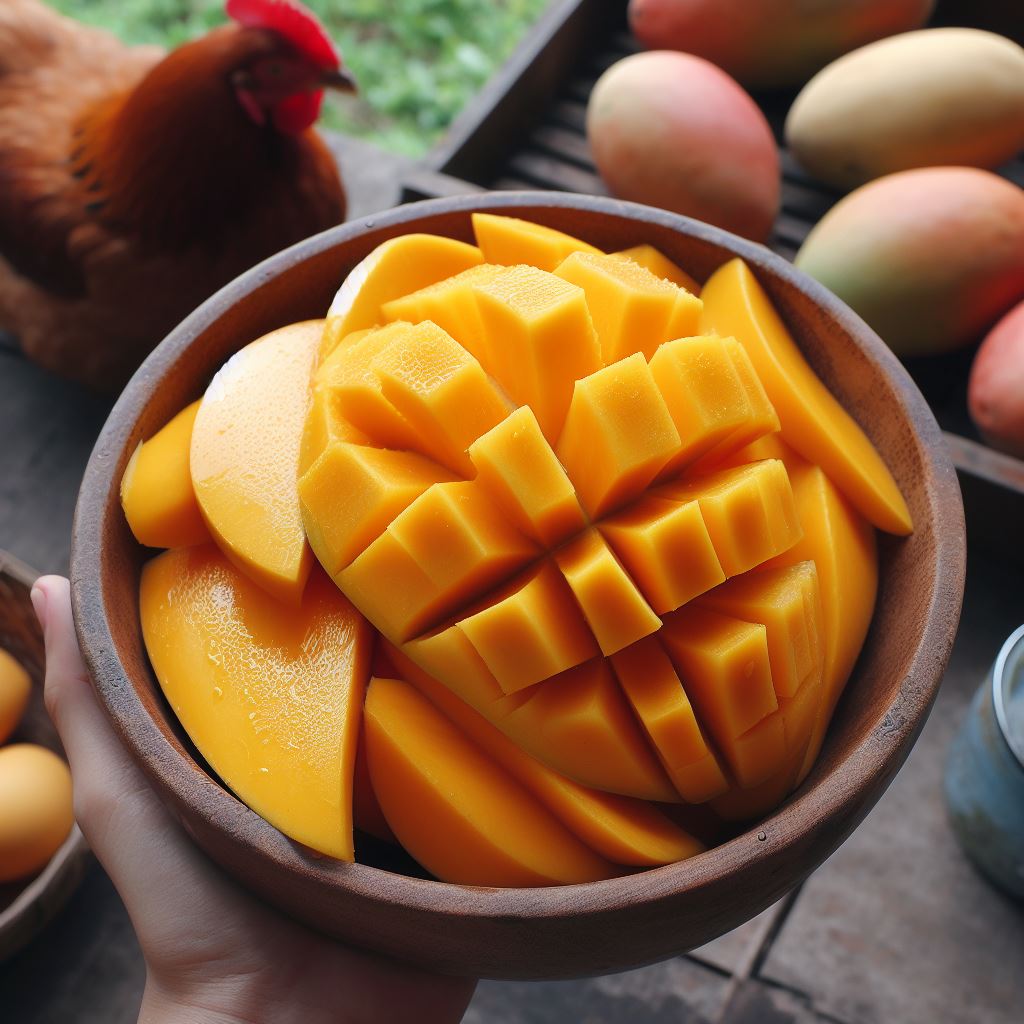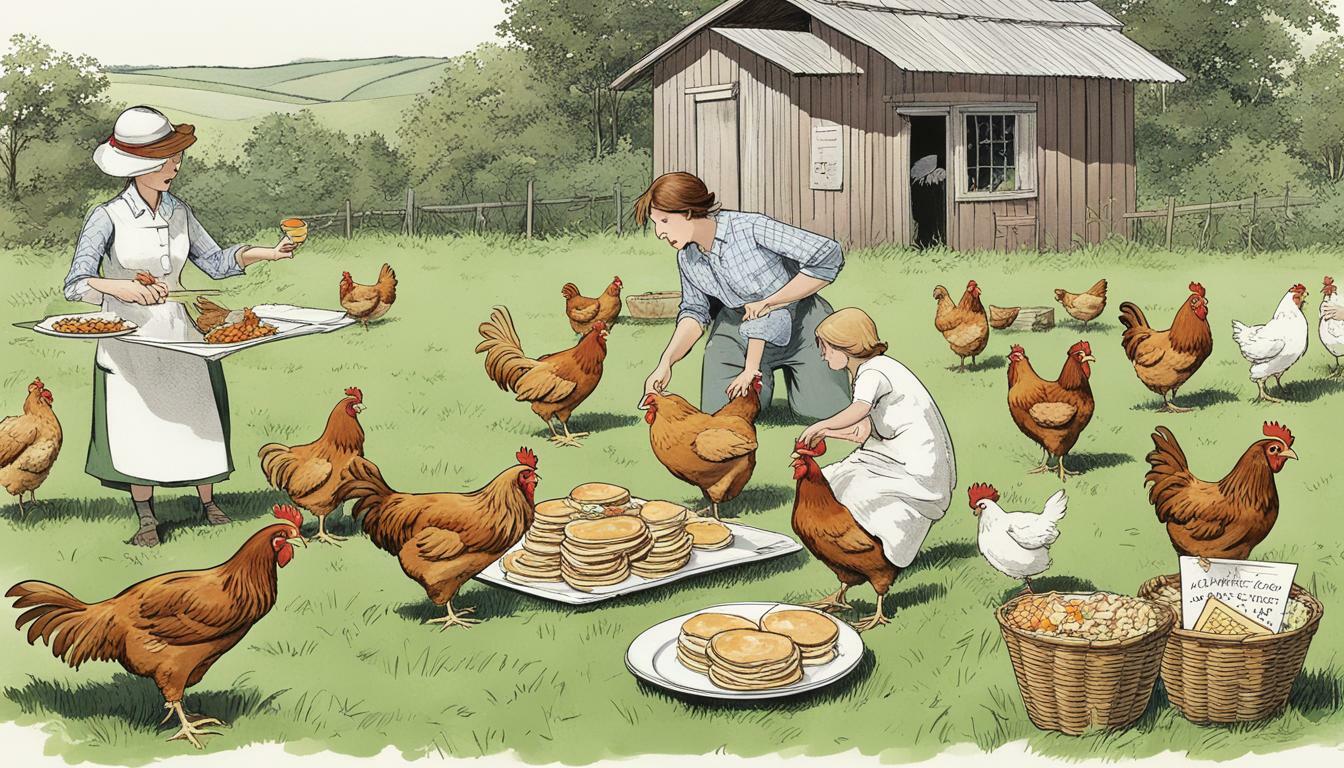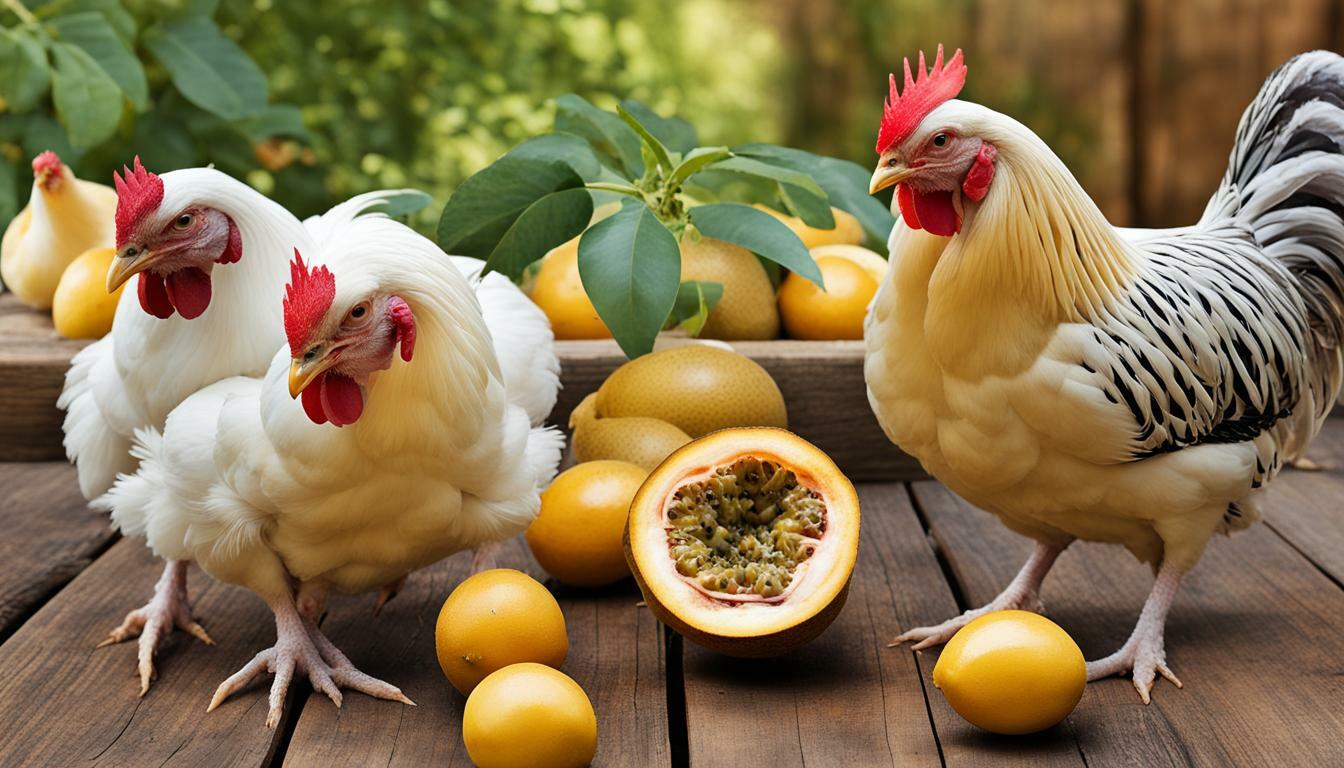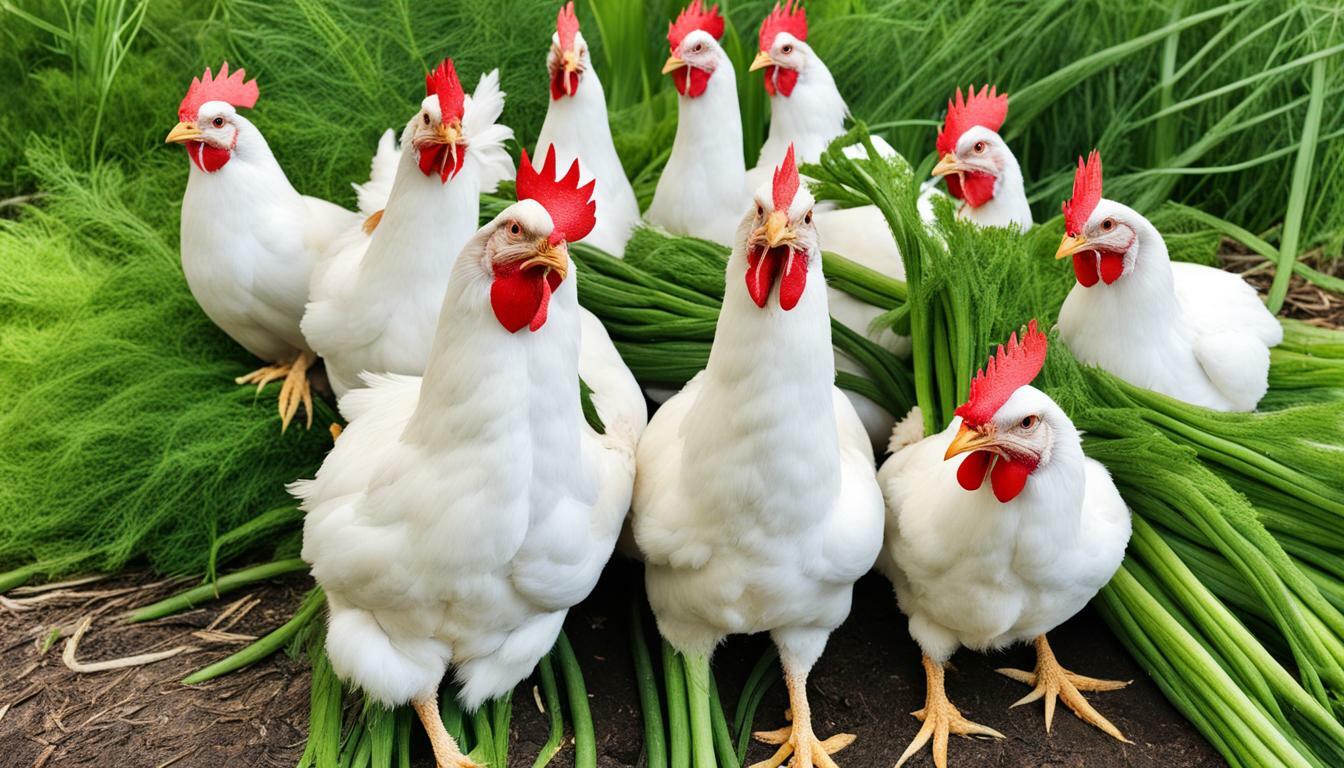Can Chickens Eat Mango? Nutrition Facts, Recipes and FAQs

Table of content:
- An Overview of Mango for Chickens
- Nutritional Benefits of Mango for Chickens
- Best Practices for Feeding Mango to Chickens
- Are Mangoes Safe for Baby Chicks?
- Pit and Skin Hazards
- Can Too Much Mango Cause Diarrhea?
- The Best Mangoes for Chickens
- How to Offer Mangoes to Chickens
- Mango Treat Recipe Ideas
- FAQs About Feeding Mangoes to Chickens
- Conclusion
Mango is a sweet, juicy tropical fruit that most people enjoy as an occasional treat. But can chickens eat mango too? As a chicken owner, you may be wondering if it’s safe and healthy to offer your flock mango as a snack. In this comprehensive guide, we’ll explore everything you need to know about feeding mango to chickens.
An Overview of Mango for Chickens
Chickens can eat mangoes without any issues. Mangoes contain lots of nutrients and vitamins that are great for your chickens’ health. Offering small amounts of mango as an occasional treat can be a safe way to provide your flock with variety in their diet.
However, moderation is key. Too much mango can cause diarrhea or upset your chickens’ digestive system. It’s best to feed mango in limited quantities and alongside your birds’ regular feed.
When feeding mango, be sure to remove the pit and skin first, as these parts can be choking hazards. Cut the mango into small pieces to make it easier for your chickens to eat.
Nutritional Benefits of Mango for Chickens
Mangoes are packed full of nutrients that are great for your chickens’ health. Here are some of the top nutritional benefits of mango for chickens:
- Vitamin C: Mangoes are high in vitamin C, an important antioxidant. Vitamin C promotes a healthy immune system in chickens.
- Vitamin A: Mangoes contain beta-carotene, which the body converts into vitamin A. Vitamin A is important for eye and skin health in chickens.
- Potassium: Mangoes are a good source of potassium, which supports nerve function in chickens.
- Fiber: Mangoes provide both soluble and insoluble fiber. Fiber aids digestion and gut health.
- Antioxidants: Mangoes are rich in antioxidants like vitamin C, polyphenols, and flavonoids. These help reduce inflammation and cell damage.
- Low fat: Mangoes are naturally low in fat, making them a healthier treatment option.
In moderation, mango can be a nutritious addition to a balanced chicken diet. The vitamins C and A, antioxidants, potassium, and fiber offer valuable health benefits.
 Best Practices for Feeding Mango to Chickens
Best Practices for Feeding Mango to Chickens
When offering mango to your flock, follow these best practices:
- Wash the mango thoroughly before preparing it.
- Cut away the skin and pit – these are choking hazards if consumed.
- Chop the mango flesh into small, chicken-sized pieces.
- Mix a few small mango pieces into their feed, or offer free-choice in a separate dish.
- Start with just a few pieces per chicken, monitoring for any digestive issues.
- Feed mango just 2-3 times per week at most. Too much can cause loose stool.
- Provide mango as a supplement to a balanced diet, not a replacement.
- Remove uneaten mango within 1-2 hours to prevent spoilage or flies.
- Store any leftover chopped mango in the fridge for 2-3 days maximum.
Following these tips will help provide your flock with mango safely and minimize any potential issues.
Are Mangoes Safe for Baby Chicks?
Baby chicks under 4 weeks old have delicate digestive systems that are still developing. For the earliest weeks, it’s best not to offer any treats or fresh foods.
Once chicks are 4-6 weeks old, you can begin introducing small tastes of new foods like mango. Take it slowly, offering just a piece or two at first.
Wait until 8 weeks old before feeding mango more regularly, still in strict moderation. Carefully monitor chick health and stool consistency when introducing new foods.
Overall, mangoes are fine for chicks over 1 month old, but extra care should be taken not to overwhelm their digestive systems.
Pit and Skin Hazards
While the mango flesh is safe for chickens to eat, the pit and skin present some risks:
Mango Pit
- Large and difficult to break down if swallowed whole
- Can get stuck in crop or digestive tract
- Toxins present may cause illness if consumed
Mango Skin
- Rubbery, tough texture
- Not easily digested
- May cause choking or impaction
To avoid these hazards, always peel and pit mangoes before feeding them to chickens. Discard the pit and compost the skin if possible.
Never allow chickens to peck at whole, uncut mangoes, as they may swallow pieces of skin or pit.
Can Too Much Mango Cause Diarrhea?
While mango flesh is safe for chickens, too much at once can lead to loose stool or diarrhea.
Some reasons why overfeeding mango may cause diarrhea include:
- High sugar content – too much can disrupt gut bacteria
- High fiber content – may accelerate digestion too much
- High water content – can cause overly wet droppings
- Too much of a new food at once can stress the digestive system
To avoid diarrhea when feeding mango:
- Start with just a few small pieces per bird
- Slowly increase portion size over days/weeks
- Feed no more than 2-3 times per week
- Mix mango in with regular feed
- Monitor chickens’ droppings for any changes
With a gradual introduction and moderation, mangoes can be fed safely without disrupting digestion. But sudden large amounts may loosen stools.
The Best Mangoes for Chickens
Any variety of ripe, sweet mango is safe for chickens to eat. But here are some of the best types of mangoes to offer your flock:
- Haden: Sweet, fiber-rich flesh with small pit
- Ataulfo: Creamy, soft texture preferred by chickens
- Kent: Sweet and juicy – a chicken favorite
- Keitt: Low fiber for sensitive digestion
- Tommy Atkins: Rich flavor with lots of flesh
Organic, free-range mangoes are ideal to reduce chemical exposure. But standard grocery store mangoes work too.
The softer and riper the mango, the easier it will be for chickens to eat and digest it. Avoid unripe, sour mangoes.
How to Offer Mangoes to Chickens
Here are some creative ways to serve mangoes as a treat for your flock:
- Dice mango into small pieces and mix into feed
- Skewer mango chunks on kebab sticks for pecking
- Hang a mango half from a string for a swinging treat
- Place diced mango in a chick feeder, trough, or tray
- Hide mango pieces in bushes or yard forage area
- Freeze pureed mango in ice cube trays for hot days
Offering mango in different ways keeps chickens engaged and entertained. Mix it up and find their favorite presentation methods.
Mango Treat Recipe Ideas
You can combine mango with other healthy ingredients to create nutritious chicken treats:
Mango Chicken Salad
- Diced mango
- Shredded cooked chicken
- Fresh parsley and cilantro
- Plain Greek yogurt
- Chopped pecans
- Sprinkle of wheat germ
Mango Pineapple Smoothie
- Mango chunks
- Pineapple chunks
- Plain kefir or yogurt
- Dash of honey
- Ice cubes
- Blend until smooth
Fruit Skewers
- Alternating mango, pineapple, grapes, banana chunks
- Thread onto skewers for pecking treat
These recipes add extra nutrition and variety alongside the mango. Rotate different combinations to keep your flock interested.
FAQs About Feeding Mangoes to Chickens
Here are answers to some frequently asked questions about feeding mangoes to chickens:
Can chickens eat mango daily?
No, mangoes should be limited to 2-3 times per week at most. Too much can cause digestive upset.
Do chickens like the taste of mango?
Most chickens love the sweet taste of ripe mango. It’s a good source of natural sugar.
Can mango help chickens lay more eggs?
The nutrients in mango can contribute to healthy egg production. But mango alone won’t directly increase eggs.
What if my chicken eats mango skin?
Swallowing some mango skin accidentally is not likely harmful. But try to remove it when possible, as it can’t be digested.
Are mango seeds poisonous to chickens?
The seed itself is not poisonous. But it can cause obstruction or choking if swallowed whole.
Conclusion
Mango can be a safe, healthy, and tasty treat for chickens when fed in moderation. The nutrients and fiber support chickens’ overall wellbeing and egg-laying abilities.
Follow proper preparation methods and portion sizes to prevent issues like diarrhea or digestive upset.
With some care and supervision, your flock will appreciate mango as an occasional addition to their regular diet.
This tropical fruit can offer valuable variety and excitement at snack time.
Welcome. I’m Adreena Shanum, the proud owner of this website, and I am incredibly passionate about animals, especially poultry. I founded adreenapets.com as a labor of love, stemming from my desire to share my knowledge and experiences with poultry enthusiasts worldwide.




